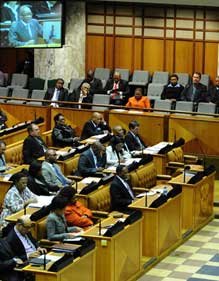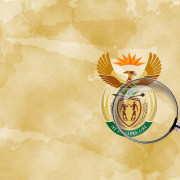|
Getting your Trinity Audio player ready...
|
 Dear CW
Dear CW
Following the arrest of two officials in her department, Labour Minister Mildred Oliphant recently spoke out against corruption. It’s all good to be fighting corruption in departments but shouldn’t we be starting at the top? Are there any laws that govern the conduct of ministers and if so, what can be done if it is found that a minister is in contravention of such a law?
Yours
Concerned about Cabinet
Dear Concerned,
Ministers are powerful people but they’re not above the law. They’re still subject to the same laws as you and I. However, because of their access to public resources, the considerable power they exercise, and the concern we have as citizens that our politicians be above reproach, ministers are also subject to further laws that don’t apply to regular people.
Ministers, as well deputy ministers and MECs, are subject to the Executive Ethics Code. The intention of the Code is to provide a code of ethics that sets out the standards and rules that promote an open, democratic and accountable government. The Code begins by setting out a number of general standards that we should expect from ministers including duties of good faith, diligence, honesty, integrity and the like. Ministers are held to these standards by the President.
The remainder of the Code contains more specific requirements. Section 3 deals with conflicts of interest and requires, at a minimum, that ministers declare any personal, private, or business interest they may have in a matter that is before Cabinet. Ministers should sell their shares in companies that might cause them to have conflicts of interest or hand those shares over to an independent administrator.
Ministers have special duties not to solicit or accept certain gifts. They should definitely refuse any gifts offered in return for favours or that might unduly influence them. As a way of picking up problematic gifts, ministers should get permission from the President to keep gifts valued at greater than R1 000. If the President says no, the gift has to be returned or given to the State (one wonders what the State will do with an expensive bottle of Johnny Walker Blue).
Each Cabinet member should be reporting their financial interests as well as those of their spouses to the Secretary of Cabinet for reporting in the Register of Financial Interests. In the register, you’ll find the details of each Cabinet member’s shares, sponsorships, gifts, travel expenditures, property, and pensions. Since Cabinet members are also entitled to privacy, not all of those details are available to the public.
How then can politicians be held accountable to this Code? The President and Parliamentarians may lodge complaints with the Public Protector. She is then under a duty to investigate any complaint received from them. Once she has completed her investigation, she must submit a report on the complaint to the President. After that, the President has 14 days to take any appropriate action and must then table the Public Protector’s report and his own report on actions taken(if any) to Parliament.
This may all seem rather political – but that is not necessarily a bad thing. Often conduct that is unethical is not criminal. The approach to dealing with violations of the Code leaves much work to politicians and the public. We need to speak out against practices we don’t support and call for the resignation of those we don’t believe should be holding the highest offices. Fighting unethical practices is about creating a culture that says clearly certain conduct won’t be condoned, even if it isn’t criminal.








